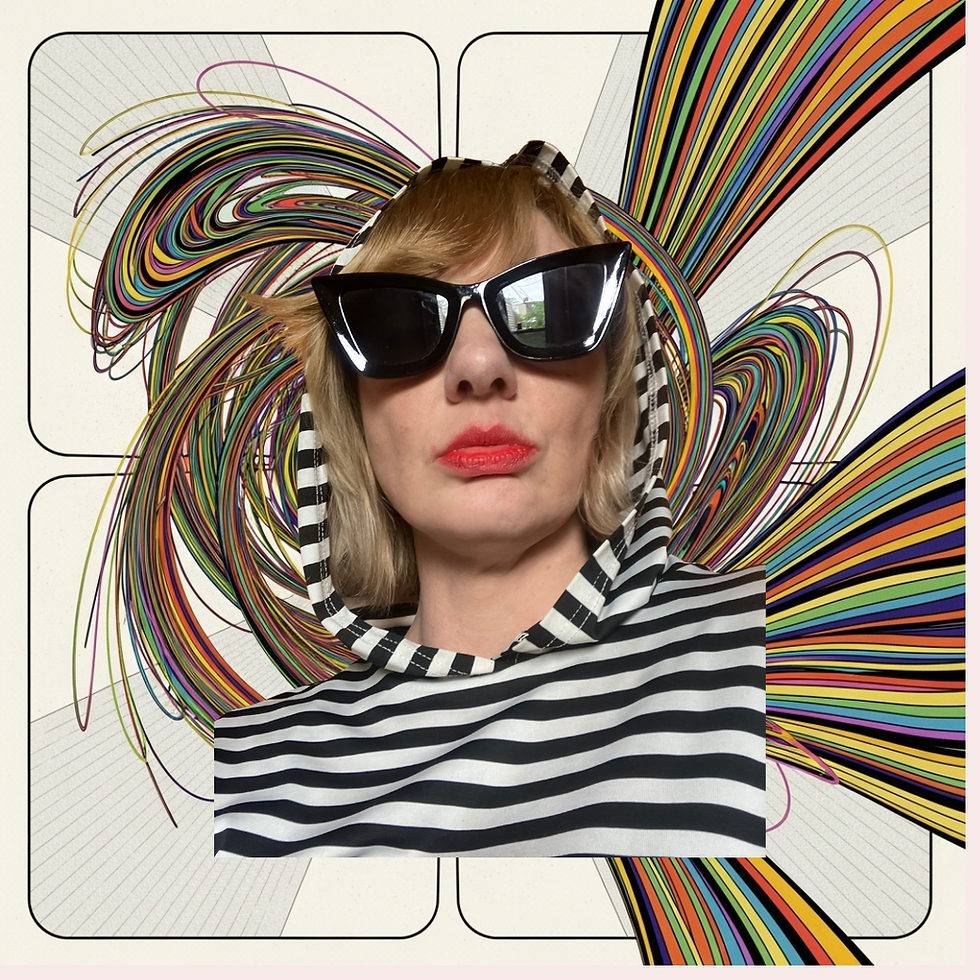Neuro Anarchy and the Growth of Autistic Culture at Medium Day 2024
- Nicole Igarashi
- Aug 20, 2024
- 3 min read

I was a guest at Medium Day last Saturday, speaking about neuroanarchy and rhizomic activism as it pertains to the spread of autistic culture. I appreciate their commitment to human storytelling in an increasingly Chat GPT world.
The term itself"Neuro-Anarchy," was coined by autistic researcher Katie Munday, to describe acts that invite us to re-think how we integrate different thinking styles into society.
During my 30-minute presentation, I helped people to deepen their understanding of this concept. What if we prioritized the intrinsic rights of humans over hierarchical social and economic creations? What does neuro anarchy look like?
Questions I asked attendees to consider were...
What if there is no "normal" way to be?
What if everyone, regardless of neurological differences, had an equal say in decisions affecting them?
What if, instead of fitting into existing systems, we transformed those systems to be inherently inclusive?
What if representation went beyond tokenism?
What if autistic individuals were centered in all decisions regarding our care, and our perspectives genuinely influenced outcomes?
Neuro-Anarchy in Action
Find and Return to Autistic-Led and Protected Spaces
Because autistic individuals lead them, these spaces provide meaningful empowerment and self-advocacy instruction. In autistic-led spaces, we find a sense of belonging. Many for the first time. We can finally take up space freely without fear of judgment or discrimination. We can organize to take bigger steps like....
Create Diverse Advisory Boards:
Form or join advisory boards for local organizations or community groups that include autistic individuals.
Host Our Own Events:
Create environments where we can participate fully in any manner that suits us.
Promote Inclusive Education:
Advocate for educational systems that embrace neurodiversity.
Demand autism services designed by autistic researchers. Push back on harmful behaviorism.
Call Out Ableism:
If you have the privilege to do so, take action against policies or practices that disadvantage autistic individuals.
The ability to assemble and self-organize is a fundamental aspect of democratic societies, allowing individuals to come together to express their opinions, advocate for their rights, and effect change. This right is enshrined in many constitutions as a cornerstone of freedom.

Understanding the Rhizome and Rhizomic Activism
Rhizomes, a botanical term, can represent non-hierarchical, decentralized networks of social organization. Unlike hierarchical (or tree-like) structures, rhizomes are characterized by non-linear, multiplicative growth that is constantly evolving.
Non-Hierarchical Structures:
Decentralized, with multiple entry and exit points reflecting a more egalitarian approach.
Multiplicity:
Grow in multiple directions simultaneously, emphasizing diversity and multiple different perspectives.
Connection and Heterogeneity:
Connect diverse elements in unexpected ways, valuing the mix of different ideas and influences.
Dynamic and Fluid:
Constantly evolving and adaptable, capable of reconfiguring in response to changing conditions.
The rhizome can be used for both emancipatory and totalitarian purposes.
Radical Acts of Equality
Radical Acts of Equality can encompass a wide range of actions and initiatives aimed at challenging systemic inequalities and promoting fairness and justice in society. They can take the form of grassroots movements, policy changes, protests, or even individual acts of solidarity and allyship. Here are a few ways we like to challenge narratives.
Culture Jamming:
A form of activism that disrupts and subverts mainstream cultural institutions and media messages.
Challenges dominant narratives and encourages critical thinking.
Subverting Dominant Narratives:
By presenting authentic experiences and perspectives, autistic creators disrupt conventional stereotypes about autism.
Re-appropriating Media:
Autistic creators counteract negative and inaccurate representations found in traditional media.
Re-configure logos and social icons to challenge mainstream notions of what is “cool.”
Personal Empowerment
It's crucial to recognize that not everyone has the privilege or resources to actively engage in changing their communities. However, each of us possesses the power to effect profound change from within.
When we commit to transforming our inner voices and speaking kindly to ourselves, we lay the foundation for a more compassionate and understanding world. This internal shift ripples outward, influencing our interactions and advocacy.
Embracing compassion and fostering positive self-talk in a world that measures your value in dollars is a powerful act of resistance. If that is all you can contribute to the movement, that is still enough.
View the full presentation on Zoom Events until September 16, 2024.











Comments